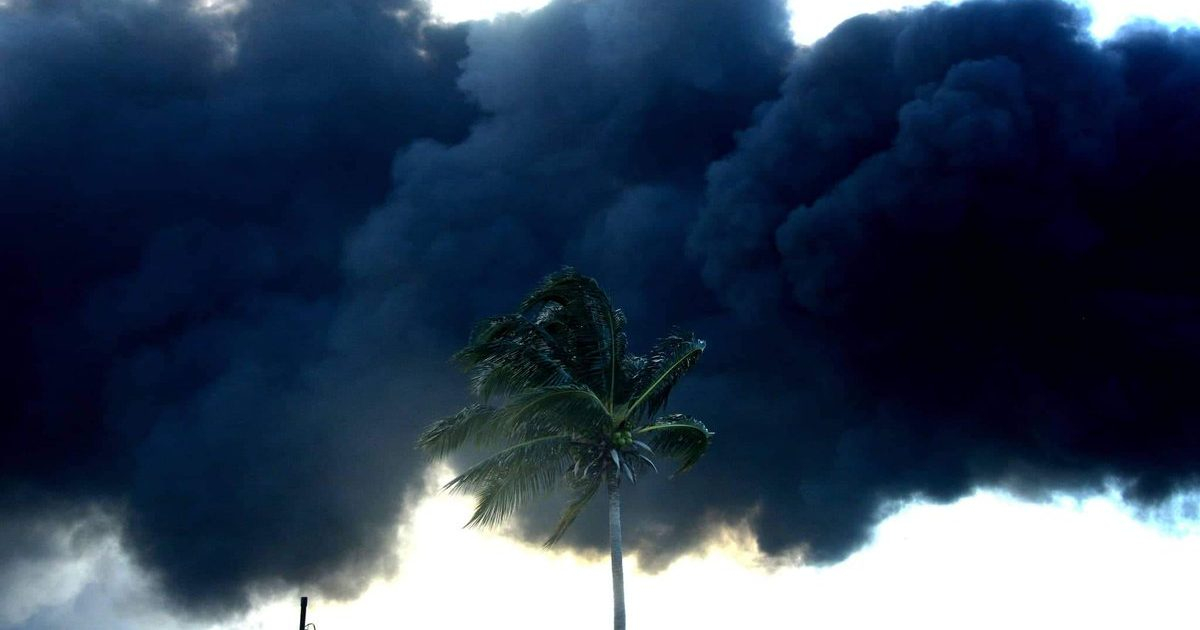
Cuban health authorities denied that there is environmental contamination as a result of theLarge fire at the Matanzas refinery, despite complaints from several residents about damage to their crops and water supply sources due to smoke and black ash rains.
Dr. Luis Wong Corrales, provincial director of Public Health in that territory, stated in a morning communication this Wednesday that "there is no environmental contamination although the advice to use the face mask and not get wet if it rains continues," according to the report on Facebook from the matanzas stationRadio 26.
His statements contrast with press reports on Tuesday, according to which residents of the Yumurí Valley told the newspaperGiron that afterSunday rains the fall of black ashes It has damaged crops, and contaminated water and the environment.
Farmer Enrique Viera García showed his pumpkin plantations covered in a black, viscous substance that falls with contaminated rain.
His father-in-law, Diosdado Vera, 89, also said that he fears that his animals will become poisoned and die because the water he offers them to drink was contaminated with that black rain.
The Versalles neighborhood of the city of Matanzas is also covered by smoke from the fire at the Supertanker Base, according to photos and videos shared by Cuban photographer and audiovisual producer Miriel Santana on Twitter.
He said that the "dense curtain of smoke can be seen over Versailles", where "you can feel the smell of fuel," said Santana, who has taken a series of photos and videos since the incident began this last Friday at the Supertanker Base of the Matanzas refinery, to document its effects.
Residents of the Cuban province of Mayabeque, which borders Matanzas, also reported the first effects of environmental pollution generated by the large fire: "The cows don't want to eat the grass and the water is black," they said.
In statements to Santana, two Cubans residing in the town of San Adrián, on the border of Mayabeque and Matanzas, they said that thereenvironmental impact is already evident. "Since yesterday a very large amount of water fell in the afternoon, and the animals no longer want to eat the grass, they chew, they chew, they throw it away and they don't want to eat it," commented one of the interviewees.
"We also have nowhere to give water to the animals, the rivers are completely contaminated with a black substance after it rained, the pastures are black, and the clothes that are hung out are collected with black soot that is no longer thrown away," he explained.
On Friday, lightning caused a powerful fire in aMatanzas refinery fuel tank, which subsequently involved four other deposits.
In this context, the Matanzas health authorities recommended closing doors and windows and wearing a mask, even inside the home, to avoid infections.harmful consequences of associated smoke to the strong fire.
However, the government insists on denying that there is contamination. On Tuesday, the Aguas Varadero company denied that there was contamination of its supply sources due to the fire and the column of smoke from the burning of millions of liters of oil.
"Since the fire in the Mantanzas Industrial Zone and the resulting column of smoke, which could cause the so-called acid rains, a rumor is circulating among the residents of Varadero and Santa Marta that the Varadero Water Supply Sources could become contaminated. and the water supply to the population would have to be stopped. This is totally FALSE," the company noted.
What do you think?
SEE COMMENTS (4)Filed in: